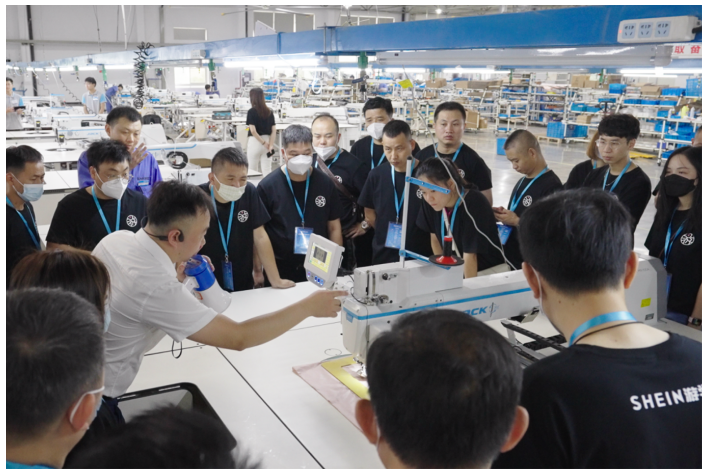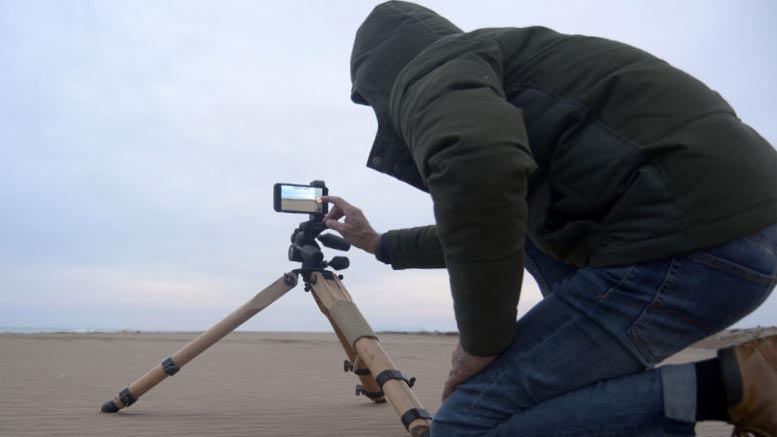
Billionaire balance sheets and meteoric careers aside, Chris Xu must be given a curious merit: he has raised a true e-commerce giant like Shein with minimal personal exposure, so meager, so utterly scanty, that what we know of him is a mixture of very shallow and sometimes contradictory biographical brushstrokes and the odd rumor.
Because we don’t have an exact idea of what its origins are. In July, The Guardian wanted to draw up his profile and had no choice but to expose the different versions that circulate about his life. Let’s see. His name is Xu Yangtian. From there, where he comes from, where he studied, and what his beginnings were is almost a mystery. Some say that he is a Chinese-American who studied at the University of G. Washington and maintained that he was born in 1984 in Shandong, in eastern China, and ended up looking at the Qingdao University of Science and Technology.
There, in the Asian giant, the media present him as a former student of humble origins who had to work to pay for university, a story of a self-made man from a manual that is very much to the taste of the sector. On his origins, from Shein, they have slipped that Xu would have been born in China.
Your key: strategy

The jumble of data is just one more example of the zeal with which the dubbed “China’s fast fashion king,” the millionaire founder of a fast-growing company, has done his best to stay out of the spotlight. Here comes the second source of information that completes his professional profile with more obscure than clear: rumors and anecdotes.
One of them, the most popular, paints him as a manager who can be found in his office at two in the morning, surrounded by his team, thinking strategies. Another, which does not leave him standing so well, points to him as a businessman capable of leaving his partners on the road. It’s even hard to come up with a verified image of him. In some articles about the company, a portrait matches that of a professor with the same name from Cornell University.
What we do know is his aim to create a fast fashion and online commerce giant, Shein, with 10,000 employees worldwide, customers in more than 150 countries, and $11 billion in annual sales, according to Forbes. His fortune would rise to 10,000 million, which places him in the Top 30 of the richest people in China, according, again, to Forbes. All with 38 years, the drive of a young company, and a profile less known than that of Jack Ma from Alibaba.
In 2008 — The Guardian specifies — he formed a cross-border e-commerce business, Nanjing Dianwei Information Technology, together with two other partners, in which he would have already demonstrated one of his great skills: SEO and a knack for promoting and hunting trends.
In his business career, he would follow the ZZKKO brand, which began by focusing on wedding dresses, and finally, Sheinside, which would end up deriving in its current name, Shein, in 2015, easier to remember and, above all, to search on the Internet. Year the company moved its headquarters to Guangzhou to be closer to its suppliers and opened an office in the United States.
By 2019, the company was already generating billions in sales, and the following year, it knew how to shore up its strategy during a pandemic that triggered precisely e-commerce. The result: at the beginning of this same year, Bloomberg published that the company was in contact with possible investors, including General Atlantic, for a round of financing that could place the company at around 100,000 million dollars, which It would make it one of the most valuable startups in the world and double Fast Retailing, which owns Uniqlo.
The key to your success?
A well-measured combination of prices, catalog, times, and visibility.
The company has opted for an aggressive pricing policy, a vast catalog, and an ultra-fast fashion model that knocks down the times Zara had already reached in the 2000s. If the Inditex brand managed to revolutionize the industry by reducing the time Between the design and the store sale in a few weeks, Shein has gone a step further by doing it in a matter of days.
All are accompanied by market research and a forceful marketing strategy largely oriented to Generation Z and social networks. A study with American teenagers by Pier Sandler showed at the beginning of this year that Shein was already the second preferred online shopping website for this sector of the population, only behind the giant Amazon.
The company and Xu himself seem to be looking with growing interest at Singapore, where the company would have key assets and where Reuters reported in February the businessman would have settled.
A growth with shadows
Not all are strengths, entrepreneurial brilliance, or great balance sheets.
Apart from the accusation of the businessman’s ex-partner who points to his origins, Shein has faced criticism for alleged plagiarism, both from other chains and from artists, as well as for the impact of his products and fast fashion model in the medium, a message in which Greenpeace had an impact just a few days ago, emphasizing the quality of the materials it uses.
The focus has also been placed on the working conditions that it imposes on its workers, a controversy that has even led to a documentary on the British channel Channel 4, “Untol: Inside The Shein Machine.” In 2021, Reuters revealed that the company had not disclosed information about working conditions in its supply chain, a requirement set by UK law, and questioned the integrity of certain certificates it displayed. In November, the focus was on the origin of at least part of its cotton.
A giant that arouses expectation has come to ally with Amazon, of which it has even been said that it can be measured with the greats of the sector… but guided by a tycoon far from the spotlight.

Sharlene Meriel is an avid gamer with a knack for technology. He has been writing about the latest technologies for the past 5 years. His contribution in technology journalism has been noteworthy. He is also a day trader with interest in the Forex market.











